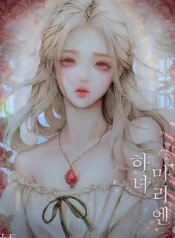Chapter 23
Three years ago, for nearly half a year, Zechart was unable to return to his daily life.
The reason was a serious injury.
It was not just his body—the psychological aftereffects were even worse.
Unlike the body, a shattered mind cannot simply be rebuilt with medication.
Even after being discharged from the hospital, he suffered frequent seizures and horrific panic attacks.
That was why Zechart became obsessed, if only briefly, with his lost memories.
That emptiness created a fierce longing.
He thought that if he could reclaim what he had lost, maybe the endless, crumbling pain inside him would finally ease.
The first thing he did was search for his family.
Surely he hadn’t just fallen into the world alone—someone must have birthed him, or raised him.
As he’d guessed, he did have a family.
‘Though whether you could even call that family, I don’t know.’
His biological father was a farmer.
A drunk who, every day, took out his violence on the family.
When Zechart’s mother died of illness, the man dumped his only son at an orphanage.
The child grew up without parents, joining the army before he’d even reached adulthood.
Of course, Zechart didn’t actually remember any of this.
He’d read records, listened to testimonies.
At the orphanage, and from old neighbors in his hometown.
The reason it was a neighbor who gave testimony, not his father, was simple: by the time Zechart went looking, the man had already been dead for years.
He’d drunk himself to an early grave, and there wasn’t a single person left who remembered where he was buried.
Learning about his past left Zechart feeling deeply hollow.
He’d expected it to be something important—something essential to his life, the loss of which could justify such unbearable pain.
But when he finally faced that past, he found it so pitiful that he almost felt relieved it was forgotten.
How could this be?
How could losing something like that hurt this much?
Could it really feel as though his bones were broken, as if his flesh was being stripped away?
An endless, empty question echoed in his mind, never finding an answer.
If it hadn’t been for Heinrich, Zechart thought he might never have survived that time without going mad.
Not that he was healed, of course.
The treatment he’d received was closer to anesthesia than a cure.
Zechart simply couldn’t feel the pain anymore, though he knew it was still there.
“I’m a Hasmalian.”
Trying to shake off the past the woman had brought up, Zechart spoke.
The woman shook her head desperately, as if she couldn’t believe it.
The motion caused the blanket to slip down, revealing her unusually pale shoulder.
Zechart reached out and pulled the blanket up to cover her.
The thought flickered that this was uncharacteristically gentle of him—but in truth, she barely even registered in his mind.
“Mac, you’re from Berg. You were an officer in the Berg army, and although your parents died young in an accident, they were admired by everyone in Berg for a long time. They were good people.”
Edith tried her best to keep her voice steady, watching him with every word.
She was searching for any hint of emotion, but his pitch-black eyes remained eerily calm and still.
His response was just as flat.
“Maybe so. Which only means that I’m not that person.”
Edith pressed her lips tightly together.
Her eyes changed.
Suddenly, as if chased by something, her hand reached out for his collar, pulling at the buttons of his shirt.
“What do you think you’re doing?”
“Hold still.”
They struggled briefly.
But with a firm word, Edith quieted his resistance.
She was anxious, but her trembling hands couldn’t move any faster.
She undid his shirt buttons one by one, slowly.
‘Do you know this, Mac? Do you know what’s on your back?’
‘I don’t know what you’re talking about.’
‘I thought so. That’s why I never told you. Just remember this: there’s something on your body that only I know about—even you don’t know it.’
The memory of that old conversation made her even more anxious.
It was as if she was guarding a precious secret.
She had never told him what it was: two small moles, lined up under his shoulder blade.
They weren’t unusual in color or size.
But Edith liked their placement, hidden somewhere only she could see, where even he couldn’t.
Finally, Edith undid the last button.
Their gazes locked for a moment.
His eyes were cold, but something impossible to name flickered deep inside.
She slowly lowered her gaze, watching the tense movement of his throat as he swallowed.
Her trembling fingers parted his shirt.
Thud. The shirt slipped to the floor with a brief sound, cutting through the silence.
As she looked at his bare torso, Edith’s eyes shook wildly.
She covered her mouth with both hands, afraid she might scream.
His body was a map of violence—layer upon layer of slashes, stab wounds, and burns.
Some wounds overlapped, some places had been cut, then burned, then pierced through by something.
Her shaky breath escaped between her fingers—hot and ragged.
“How… How could…”
Her voice came out thin, like someone being strangled.
It hurt to even look at him; Edith found it hard to breathe.
Biting her lip, she traced the scars with her eyes, stopping abruptly at one spot on his shoulder—a small, relatively fresh wound.
She’d stabbed him with scissors there.
She stared at that mark for a moment, then slowly raised her gaze.
Cold, empty eyes met hers.
“That… must have hurt.”
“…”
“Even a thorn prick hurts…”
Her voice kept breaking, caught in her throat.
She had to pause to steady herself before she could go on.
“Could you… please turn around?”
“…”
“Please. Just this once. I won’t push you anymore after this.”
Reluctantly, with a long, slow blink, he stood.
His shadow fell over Edith, blocking the light from the window.
As he turned, Edith’s heart shifted back and forth. She wished—desperately—that she would find those moles there, that he was truly Maximilian.
But at the same time, she wished they wouldn’t be.
She wished he’d simply died peacefully, wished he’d been spared such terrible suffering.
Finally, he turned completely.
His broad back, covered in whip marks, was laid bare before her.
Edith’s trembling eyes flickered, then landed on one spot—holding there, unmoving.
“You…”
***
“Oh, for heaven’s sake, would you just sit still?”
Markus grumbled, but Rachel just couldn’t calm down.
She paced here and there, then finally turned and snapped at Markus.
“This is your fault.”
Markus looked genuinely baffled, as if he couldn’t understand why things had turned out this way.
“Ha! And why is the terror attack at Herman Miller’s funeral my fault?”
“It was supposed to be your job. If you hadn’t been out drinking like an idiot, Zechart wouldn’t have had to go there.”
“Oh, come on! So you’re saying I should’ve gone there and died instead?”
“Yes! I don’t care if you drop dead.”
Markus, about to snap back, just shook his head with a sigh.
When it came to Zechart, Rachel always got worked up like this.
“It’s not like I’m about to drop dead in some alley, you know? The whole district around city hall is locked down, I can’t get anywhere near it.”
Rachel, glaring hard at Markus, suddenly spun on her heel.
Markus figured she was headed to Zechart’s hideout.
He watched her fiery red hair sway with every step, then called out to her on impulse.
Rachel turned right away, her sharp green eyes meeting his.
“Don’t tell me you actually like Zechart?”
“…What?”
“Come on, it’s obvious. You get all anxious about anything to do with him. You’re so deep in this ‘fake lover’ role, it’s like you actually have feelings for him.”
For a brief moment, silence hung in the air, then a denial burst out where there should have been one instantly.
“Are you insane? Like him? Me, like Zechart? Ridiculous, I’m just worried as a partner, that’s all.”
Despite her awkward excuse, Markus nodded easily.
“Right. As if you could. Not after what happened.”
The pale blue behind Markus’s glasses twisted into a cold, mocking smile.
“Unless you get shot in the head, you can’t love someone you personally tortured, stitch by stitch. That would be a bit much, don’t you think?”
“……”
“Don’t you agree?”
Rachel couldn’t answer.
Markus spotted the color drain from her face and burst out laughing.
“Zechart has no idea, not even in his wildest dreams, that you’re the one who turned his body into a wreck.”
“…Shut up.”
“But don’t worry. Even if Zechart regains his memory, he’d kill you first, but that’s never going to happen.”
Markus truly believed it.
The organization had put even more effort than usual into creating the persona of Zechart.
They hadn’t just meticulously fabricated his past, but made sure there were witnesses placed exactly where they needed to be.
Every document connected to him had been forged, and even the little moles on his body had been carefully removed.
That’s why they couldn’t be found—not hidden, but erased completely.
“You know that, too.”
“…..”
“There’s no way lost memories ever come back.”
Rachel just bowed her head in resignation instead of answering.
Markus’s laughter, which had been falling apart silently, finally vanished completely.
With a hollow look, he murmured,
“Just like it was for you and me.
No, for all of us.”






